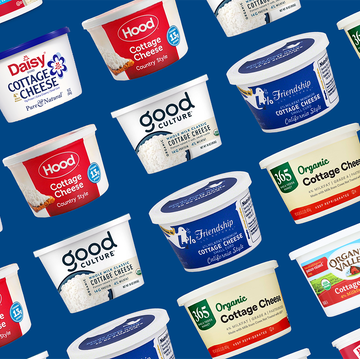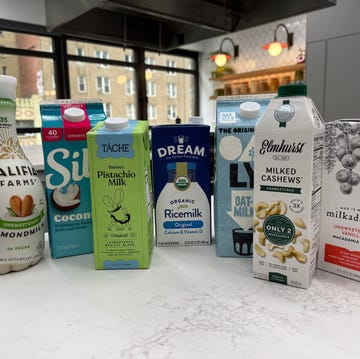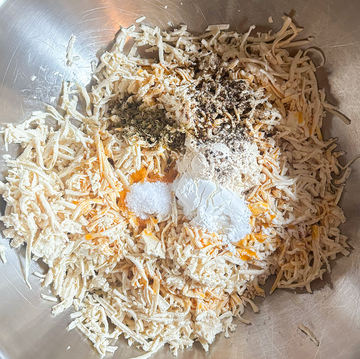We are just rounding the corner on peak fruit season. The longer days herald the best time of year to bite into a juicy strawberry, grill up some fresh pineapple, or make your favorite watermelon salad. But despite their many health benefits, there’s a catch when it comes to the fruit you find at the grocery store or local farmers market.
The Environmental Working Group (EWG)'s "Dirty Dozen" list reveals the most pesticide-contaminated fruits and vegetables. The most recent list, released in 2024, named strawberries as the number one offender. Those berry faves were followed by spinach; kale, collard, and mustard greens; grapes; peaches; pears; nectarines; apples; hot and bell peppers; cherries; blueberries; and green beans, respectively.
To develop the list, the EWG analyzes 46 domestic and imported non-organic fruits and veggies that are available for purchase in the United States. In tandem with the Dirty Dozen, the EWG also releases a list of the "Clean Fifteen," which, you can likely guess, comprises the 15 least pesticide-contaminated produce items. When it comes to fruit, pineapple, honeydew, kiwi, and mangoes topped the list of the "cleanest.
Thinking about the Dirty Dozen can be daunting, but registered dietitian Kiran Campbell encourages consumers to keep things in perspective. "The health benefits of eating fruits and vegetables far outweigh the potential risks of pesticide exposure, whether they're organic or conventionally grown," she states.
While many of our favorite fruits and veggies are sprayed with pesticides, agencies including the USDA, EPA, and FDA all have set standards for foods grown with pesticides (both domestically and imported) to ensure public safety. "Additionally, studies consistently show that higher fruit and vegetable intake, regardless of how they're grown, is linked to reduced risk of chronic diseases like heart disease, cancer, and respiratory diseases," Campbell continues.
Properly cleaning your fruits ensures even safer consumption. First up, wash your produce thoroughly under running water. "This helps remove dirt, bacteria, and some surface pesticide residues," explains Campbell. "There's no need for fancy produce washes or vinegar. Plain water and gentle scrubbing are effective."
For produce with thicker skins, Campbell recommends enlisting the help of a brush. For more delicate produce like berries, a soak followed by a rinse works well, she says.
After washing, you can peel certain fruits like apples and peaches (most pesticide residue is found on the outside), though you may lose some fiber and nutrients in the skin, Campbell notes. Finally, cooking your produce can reduce some pesticide levels, especially for veggies like spinach or peppers, she says.
"Organic produce is often more expensive than conventional fruits and vegetables, so ultimately, choosing produce you enjoy and can afford, whether organic or conventional, is what matters most," says Campbell.














